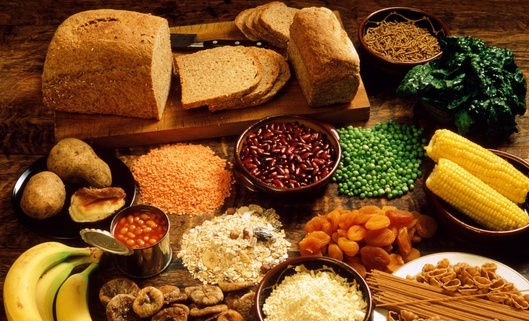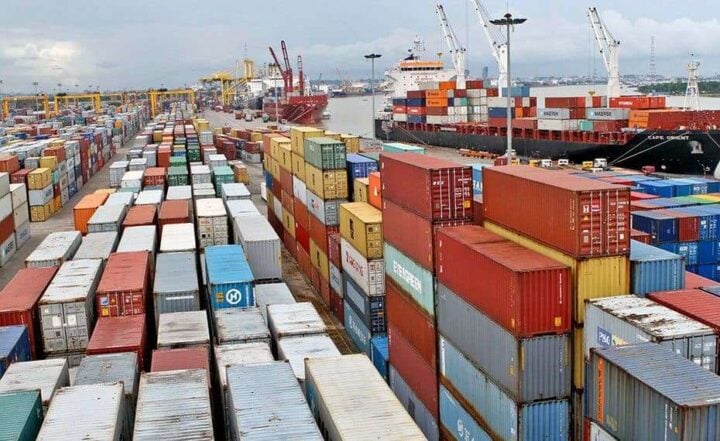Russia’s invasion of Ukraine will have a ripple effect on global food prices, and ultimately affect the prices of bread and noodles in Nigeria.
The conflict is believed to have claimed thousands of lives as millions of refugees continue to spread across Europe.
In the last few weeks, disruptions in supply chains and sanctions have affected the global market, sending oil prices to as high as $130 per barrel.
The effect has been seen in the surging price of diesel in Nigeria and disruption in petrol supply.
Advertisement
Apart from the oil industry, the Russia-Ukraine crisis may potentially hamper Nigeria’s economic growth, and send inflation to its peak.
In its February report, the Food and Agriculture Organisation (FAO) said global food prices reached an all-time high — driven by vegetable oils and dairy products.
Despite partially capturing the effect of the Russia-Ukraine crisis on food prices, the report added that the increase in food prices was principally due to sustained global import demand, uncertainty from Europe market leaders, and rising wheat export prices.
Advertisement
GLOBAL SHIPMENT DISRUPTION ON SANCTIONS-HIT RUSSIA
Russia is Nigeria’s sixth-largest trading partner in terms of import, according to the latest data from the National Bureau of Statistics (NBS).
Checks by TheCable showed that Nigeria imported N339.19 billion goods from Russia, representing 4.16 percent of the total trade in Q3 2021.
Trade volume between Nigeria and Russia has increased in the last few years, particularly in the oil and gas industry and agricultural sectors, including potash.
Advertisement
Potash is a basic nutrient for plants and an important ingredient in fertiliser.

Last week, Russia’s industry and trade ministry suspended exports of fertilisers, citing global sanctions which affected shipments.
The disruption in global shipments is expected to create a shock for the agricultural sector; potential crop failure and food shortages.
NIGERIA’S TRADE RELATION WITH RUSSIA-UKRAINE AT RISK
Advertisement
Russia and Ukraine accounted for 23 percent of the global wheat market, worth 206.9 million metric tonnes in 2021, according to the US Department of Agriculture.
In Nigeria, wheat is the third most consumed grain. By the end of Q3 2021, the data from the NBS showed that Nigeria imported durum wheat and mackerel worth N88.46 billion and N30.69 billion, respectively, from Russia.
Advertisement
Durum wheat, also called pasta wheat or macaroni wheat, is a tetraploid specie of wheat. It is also useful in bread-making and it is the second most cultivated specie of wheat after common wheat.
FOOD INFLATION IMMINENT
Advertisement
The escalation of geopolitical tension in Russia-Ukraine will lead to a hike in food prices, especially on commodities that both countries export to Nigeria.

Advertisement
Currently, the price of wheat has seen a 100 percent surge since the conflict broke out.
The development will result in a drastic increase in food prices and grains imported into Nigeria. This is different from the global shock experienced by oil traders as most fuel products are imported from Europe.
The surge in wheat on the global scene will affect the local prices of bread, pasta, cake, and other products, thereby causing food inflation.
CAN CBN SAVE THE DAY?

In November 2021, the Central Bank of Nigeria launched the Nigerian Brown Revolution, an intervention programme to boost wheat production.
Godwin Emefiele, CBN governor, had said the apex bank decided to extend the gains recorded in rice and maize value chains to wheat production.
The initiative, according to CBN, is to reduce wheat importation by 60 percent in two years and ultimately eliminate wheat importation or reduce it to an insignificant contributor to the country’s total food import bill.
With the surge in global wheat price, would the CBN be willing to release an extra $2 billion to ensure the pass-through effects are mitigated to a certain degree? If achieved through the Brown Revolution, Nigeria will expand its local wheat production, eliminate import bills and lessen the global impact on prices.
Anything less may result in a double whammy of high prices and a devalued currency.
Add a comment






